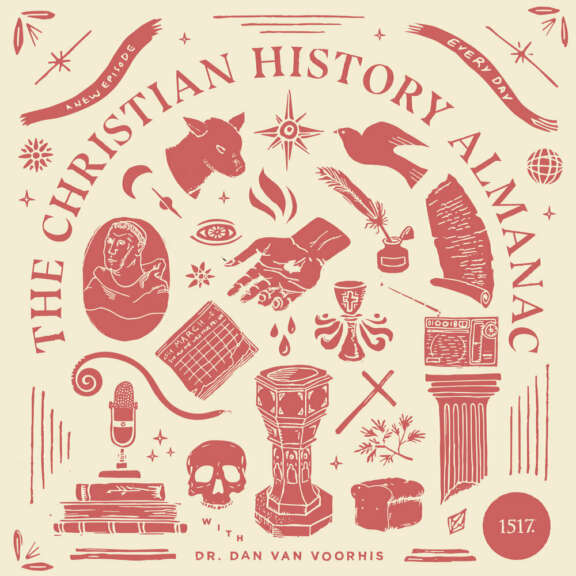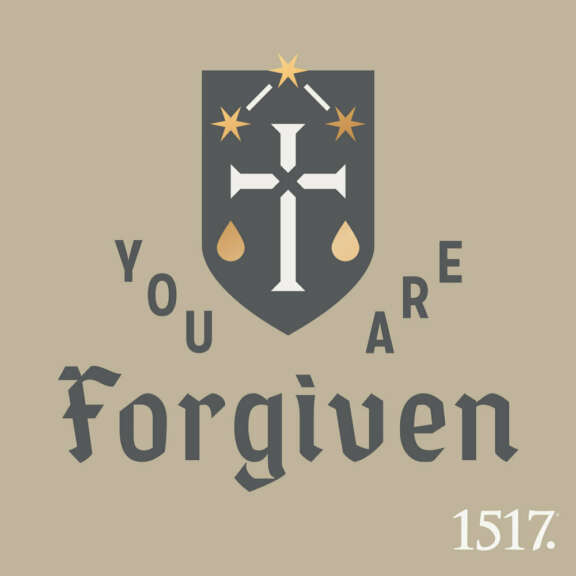The year was 1921. We remember Peter Ruckman, the fundamentalist preacher. The reading is an excerpt from Robert Farrar Capon's "Kingdom, Grace, and Judgment."
Podcasts
Each 1517 Podcast is dedicated to delivering Christ-centered content through weekly, monthly, and seasonal audio platforms. Listen online or on your favorite podcasting app.
Author
- All Authors
- Aaron Zimmerman
- Adam Francisco
- Amy Mantravadi
- Blake Flattley
- Bob Hiller
- Bradley Gray
- Brian W. Thomas
- Bror Erickson
- Bruce Hillman
- Caleb Keith
- Chad Bird
- Chris Rosebrough
- Christopher Gillespie
- Cindy Koch
- Craig Donofrio
- Dan van Voorhis
- Daniel Deen
- Daniel Emery Price
- Darrin Sheek
- David Andersen
- David Rufner
- David Zahl
- Debi Winrich
- Delwyn Campbell
- Donavon Riley
- Doug Klembara
- Edward Killian
- Elyse Fitzpatrick
- Erick Sorensen
- Flame
- Grant Klembara
- Gretchen Ronnevik
- Haroldo Camacho
- Jacob Smith
- Jared C. Wilson
- Jeff Mallinson
- Jeffrey Pulse
- Jessica Thompson
- Jim Nestingen
- Joel Fitzpatrick
- Joel Hess
- John Andrew Schreiner
- John Bombaro
- John T. Pless
- John W. Hoyum
- John Warwick Montgomery
- Katie Koplin
- Kelsi Klembara
- Ken Sundet Jones
- Magnus Persson
- Matt Popovits
- Michael Berg
- Michael Horton
- Nick Lannon
- Paul Koch
- Peter Nafzger
- Philip Bartelt
- Raleigh Sadler
- RJ Grunewald
- Robert Kolb
- Rod Rosenbladt
- Ron Hodel
- Sam Leanza Ortiz
- Sarah Condon
- Sarah Crowder
- Scott Davis
- Scott Keith
- Steven Paulson
- Tanner Olson
- Troy Neujahr
- Uwe Siemon-Netto
- Wade Johnston
- William Cwirla
-
The year was 1838, and 181 Saxon Lutherans set sail from Bremerhaven on board the steamship Olbers. The reading for today comes from C.F. W Walther's older brother, a pastor named Otto Walther.
-
Chairman Mao Loves Ice Cream. In this episode, G.K. Chesterton on what happens when we abolish God, and the government becomes the god. We discuss “unalienable rights endowed by the Creator.” The language of freedom and rights belongs to the law. And we finish with Chesterton’s prompt to consider fraud.
-
The year was 680. We remember St. Hilda of Whitby. The reading is an excerpt from Caedmon's Hymn, the oldest poem in English.
-
The year was 2002. President Lukashenko of Belarus enacted a new and sweeping law restricting religious freedom. The reading is an excerpt from Oscar Romero, "The Violence of Love."
-
The year was 1280. We remember the "Doctor Universalis" Albertus Magnus. The reading is a good word from Albertus, especially for those who study the natural world.
-
Pastor Hiller Teaches On Mark 3:20-25
-
The year was 1940. We remember the destruction of the Cathedral at Coventry. The reading is "The Coventry Litany of Reconciliation."
-
The year was 1884. We remember Prince Owusu-Ansa of Asante. The reading is from Thomas C. Oden's "How Africa Shaped the Christian Mind: Rediscovering the African Seedbed of Western Christianity."
-
The Pirates of Penance part 2. In this episode, we continue to examine Girolamo Savaronola’s sermon on penance. What happened in Florence that occasioned this sermon, and what can it teach us about church and society today?
-
The year is 1701. We remember the Vestry Act of 1701. The reading for today comes from an obscure Quaker named Henry White.
-
The year was 1821... and 1855. We remember Fyodor Dostoyevsky and Søren Kierkegaard. The reading is from Dostoyevsky on the topic of art and Christ.


